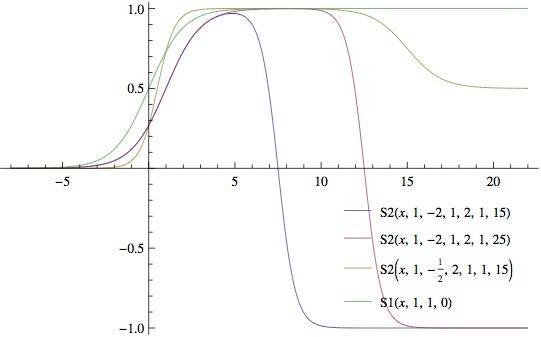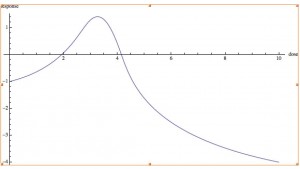Nonlinearity of Progress and the S curve.
I once had to choose for a post-conference dinner between a lively Greek Taverna and a high-high class restaurant with Michelin Star etc. I was voted down in favor of the high class restaurant, where I had to suffer through the “experience” of eating complicated tiny stuff (very very complicated) with paired wine, etc., while listening to some bullshit by the sommelier and faking that I was not bored. Other customers in the room seemed, as we say in Lebanese, to have a cork stuck in their behind (all men wore ties). The meal cost the organizers ~$200 per person.
After the meal (I was still starving), I drove to my favorite pizza place and got 2 slices of Nick’s Pizza for $6.95. I was furious, feeling hoodwinked by some constructed story that everyone was buying.
Now let us discuss constructed preferences vs natural ones: if I had a choice: between paying $200 for a pizza or $6.95 for the French complicated experience, I would pay $200 for the pizza, plus $9.95 for a bottle of Malbec wine. Actually I would pay to not have the Michelin experience.
There exists a sophistication that has negative utility. This tells us something about wealth & GDP growth in society: the presence an “S” curve beyond which you get incremental harm. It is detectable only if you get rid of constructed preferences.
Now societies have been getting wealthier and wealthier, many beyond the positive part of the “S” curve. And I am certain that if pizza were priced at $200, the people with a cork in their behind would be lining up for it. But it is too easy to produce so they opt for the costly, and pizza will be always cheaper than the complicated crap.
Tag Archives: nonlinearity
EBOLA. You need to focus on growth rate, not number of victims
EBOLA. You need to focus on growth rate, not number of victims –in other words the 2nd order, not first order effect, the nonlinearity.
—
[Added: Something that doubles every 24 days multiplies by 37,000 every year. The doubing period is 15-20 days in Libera. So the idea proposed by Yaneer Bar Yam is to slow it down in the place of origin. You can’t rely on the medical establishment here to screen propery too risky. And you want to avoid having ebola spread out of Africa too much before the winter up North when epidemics grow faster, and avoid having consumers panicking ahead of the Christmas season as they become agoraphobic.]
[Comment: This should be familiar to people here as it is the same nonlinearity behind fragility and antifragility.Naive evidentiary methods lead people to focus on death rate which is lower than mortality from hitting one’s own furniture and deem overreaction or even concern to be “irrational”. But these rates do not grow exponentially. These are the same evidentiary idiots who refused to see financial risks in 2007. Much psychologists of risks don’t know probability and think people are “irrational” when it is the psychologists who confuse, Pinker-style, naive evidence for statistical property.]
via EBOLA. You need to focus on growth rate, not… – Nassim Nicholas Taleb.
Expansion on Book IV of ANTIFRAGILE
(Expansion on Book IV of ANTIFRAGILE)
A drivers license is something binary: Pass/Fail. Nobody is foolish enough to try to get high scores in it to improve his CV with a “drivers license from the prestigious center X, summa cum laude”. We understand the nonlinearity there; and we get the point that failing the test makes one a bad driver on the road, but better grades at the test won’t necessarily make one a better driver. It is an entirely via negativa statement; failing (the negative) is where the information resides, where school knowledge may map to reality. The necessary is not to be confused with the causal.
Now try to translate the idea into other areas of education. The statement “failing to get a degree is bad for you” does not necessarily mean that “better grades are good”. It may even mean that higher grades might indicate a sick mind. This is the difference between SATISFICING and OPTIMIZING. An ecologically calibrated person, aware of the fuzziness of the mapping betwen education and skills, should be able to aim for just pass, and not be penalized by the nerd wasting time on fitting his brain cells to the exam at the expense of other skills and activities, such as street fights, reading Montaigne, or meditating under a tree. Given that university knowledge does not map to true knowledge, to protect people from themselves, university degrees should never be anything but binary, without the fluff “honors, shmonors”, etc.
(Anything that caps the variable and prevents scoring should work.)
via Timeline Photos.

